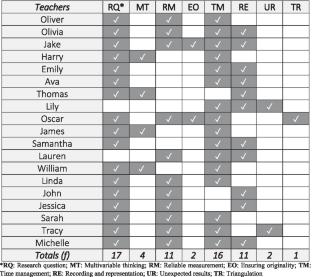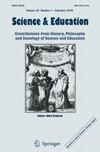Middle School Science Teachers’ Discursive Purposes and Talk Moves in Supporting Students’ Experiments
Abstract
The paper reports qualitative findings from a study about how science teachers enacted discursive purposes and talk moves to support the students’ experiments. Science teachers may have difficulties assisting students in designing and conducting valid and reliable experiments as the core epistemic practice of science teaching and learning. It is also known that teachers’ talk moves surround all teaching activities. It is therefore contributory to explore the teachers’ verbal scaffolds in aiding the students’ experiments. Nineteen middle school science teachers were the participants. This study was conducted as a naturalistic inquiry where the teachers’ in-class science inquiry implementations were systematically explored and analysed without any external intervention. Episode-based classroom discourse analyses and the systematic observations of the video records were conducted to classify the teachers’ discursive purposes and talk moves. The teachers tried to help the students compose better research questions by prompting them to operate multivariable reasoning. The teachers encouraged the students to replicate their experiments in different contexts with other persons or materials. The students were also assisted in coping with the presumable confounding variables to elucidate some unexpected experimental results. The teachers helped the students to gather reliable data. The students were also supported for generating richer discourse by making their research variables original within an acceptable time interval. Two discursive purposes, encouraging students to compose better research questions and use the given time effectively, were prominent among the observed eight purposes. For actualising these discursive purposes, the teachers enacted 26 types of talk moves with different frequencies. Recommendations were offered primarily in the sense of teacher noticing.


 求助内容:
求助内容: 应助结果提醒方式:
应助结果提醒方式:


